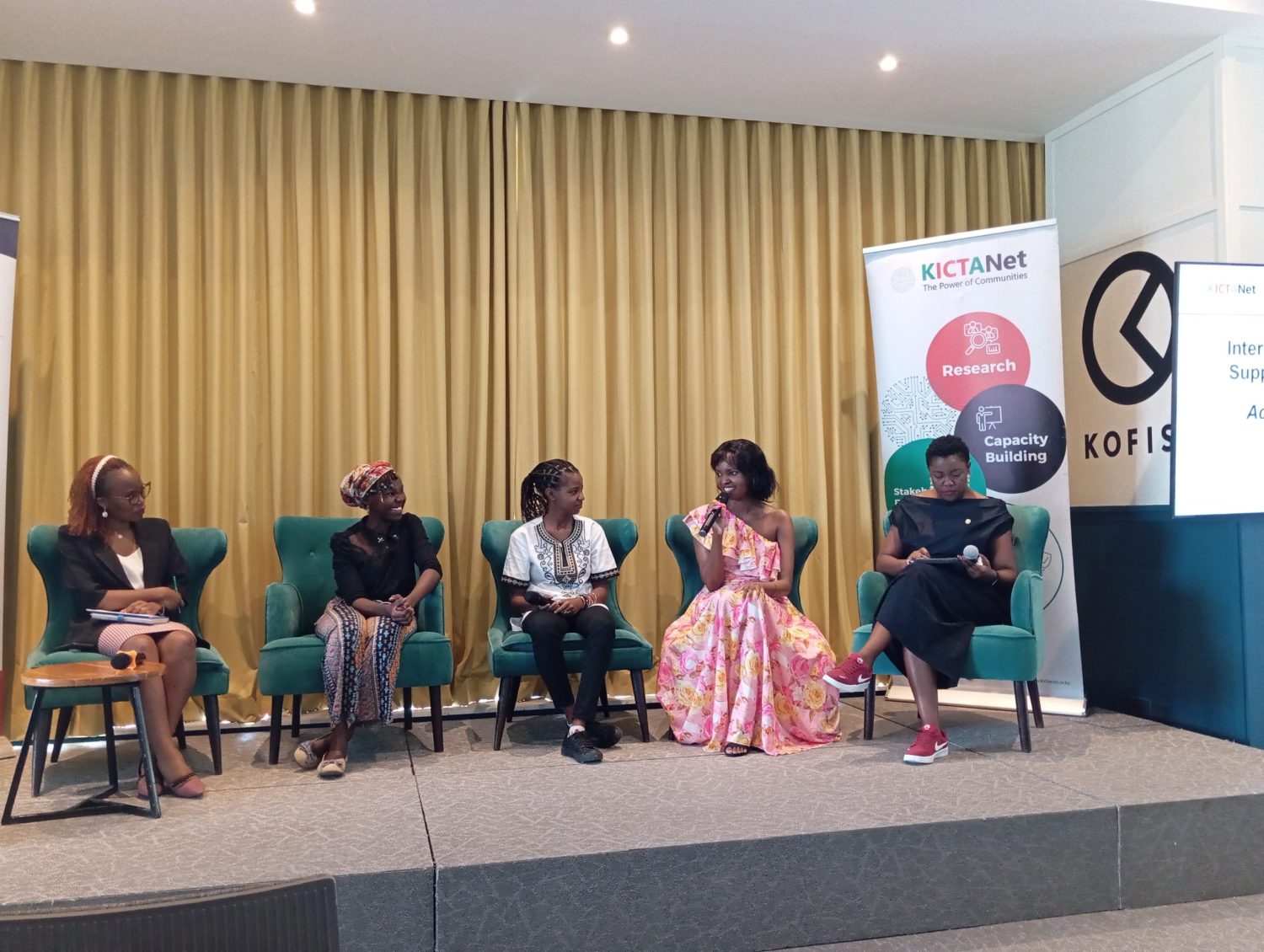On International Women’s Day, KICTANet and the GIZ’s Digital Transformation Centre (DTC) co-hosted a meeting to address a critical issue: achieving gender equality in the digital space. Dr. Grace Githaiga, KICTANet CEO, delivered an address on women’s empowerment and digital inclusion. She outlined the challenges women face online and opportunities to promote greater participation.
Christin Schulz-Kaunga, program director at the DTC, emphasized the importance of investing in women’s online safety and participation. She highlighted ongoing advocacy against discriminatory structures that limit women’s contributions to society.
Advancing Women’s Rights Online
The CEO of KICTANet had an insightful take on women’s online experiences. She highlighted the need for research to understand the impact of such experiences and to identify effective interventions for women. Not just that, she also stressed the importance of collaboration with organizations that can hold perpetrators accountable for their actions.
Dr. Githaiga’s observations on mobile technologies were equally eye-opening. Despite the existing barriers to access and digital literacy, people are increasingly adopting these technologies. In light of this trend, she recommended reviewing ICT policies to make them more inclusive and aligned with evolving technology.
Multistakeholder Discussions
Cherie Oyier, KICTANet’s Gender Program officer, led a brainstorming session that delved deeper into key cyber threats and risks women faced online and the cyber hygiene measures in place. Women are disproportionately affected by online gender-based violence, privacy, and cybersecurity challenges, which prevent them from fully utilizing technology for political, social, cultural, and economic gains.
Kenya has extensive legal frameworks that help achieve equality and inclusion of women in online spaces. Multistakeholder discussions moderated by Ms. Oyier evaluated the impact of these policy interventions and the gaps and opportunities for improvement in the policy and legal frameworks. KICTANet conducted a study to establish the nature and prevalence of OGBV in rural and urban Kenya, its impact, and the effectiveness of the available legal and regulatory framework in the country. The findings of this study can be accessed here.
OGBV results in an adverse impact on victims, and attendees held further discussions on some of the harms, coping mechanisms, and digital resilience. Psychological harm, physical harm, and death are some of the effects attributed to online gender-based violence.
The Feminist Foreign Policy.
Germany’s Ambassador to Kenya, Sebastian Groth, discussed ongoing efforts to empower women and promote gender equality. He highlighted specific initiatives addressing the challenges faced by Kenyan women.
Attendees learned that Germany is dedicating special resources and policies to support women’s rights and development projects. As part of their efforts, they have set a goal to allocate additional funding towards “gender-sensitive” and “transformative” initiatives by the end of the year. This commitment is aimed at driving progress towards greater economic and social empowerment for women.
During the meeting, Ambassador Sebastian Groth highlighted the German government’s support for the Digital Transformation Center (DTC) in Kenya, which collaborates with civil society to create a safer online space for women. The DTC is taking measures to raise awareness and train law enforcement to respond effectively. They have also developed programs that offer resources in local languages and provide training for Kenyan authorities, journalists, and politicians on online violence.
Film Screening and Panel Discussion
The day concluded with a film screening “Act of Love” and a panel discussion on the potential of technology to create safe online spaces for mothers. The discussion revolved around the importance of support systems for new mothers, including online communities and in-person groups. We all know that social media can be misleading, especially when it comes to portraying an unrealistic picture of motherhood.
Discussions explored the potential of technology to create safe online spaces for mothers, fostering connections. Mothers can feel empowered and connected with the right support systems, such as anonymous online support groups and a virtual village of support.
Cherie Oyier spoke on data privacy and digital well-being. She advocated for a healthy balance between using online resources for support and protecting oneself from negativity. Other approaches included paid family leave policies and developing online communities and tech solutions, all while ensuring privacy and data protection.
KICTANet regularly shares its work in policy advocacy, research, and capacity building to tackle online gender-based violence here. KICTANet has also developed an e-learning module on online gender-based violence, translated into six languages. The e-learning module is an open-source resource that women-led organizations can use to understand online gender-based violence and how to protect themselves.
![]()




